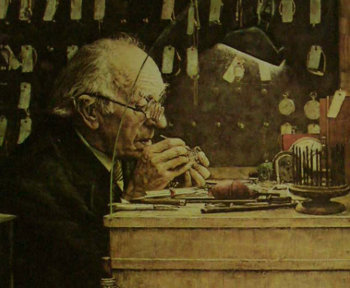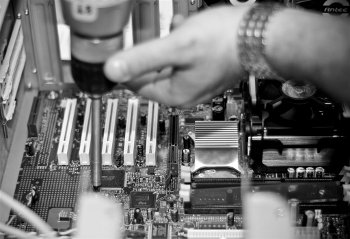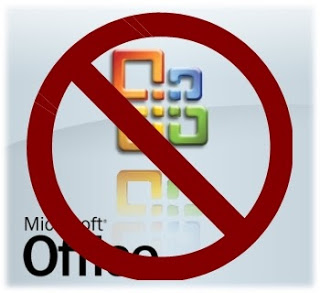I spent some time today thinking about a Slashdot article bemoaning the demise of the gadget fixer. In my generation, he was the guy who repaired my television. And yes Virginia, there really were people who fixed televisions. No, not taking them to recycle…I mean really repairing them so they could be used again. The same went for toasters, refrigerators and dishwashers. We had a guy in town who even fixed our radios.
There is no doubt that we live in a throwaway society. We see it most every recycle day throughout our streets and neighborhoods. Flat screen monitors, computers…even appliances that cost hundreds of dollars. Standing stoically, awaiting their fate to be crushed and sold for scrap.
 If the fact be known, my nonprofit prospers greatly from this 21st century attitude. I should say, the kids who receive computers from my nonprofit prosper. 60 percent of the stuff we get as donations are in good shape. The only thing wrong with them is that the owner wanted something new. We’re to the point where the donated desktops are solid core duos with at least 4 gigs of RAM. Two years ago, I would have done dirty deeds dirt cheap to get donations like that. But what we are receiving now is just fine.
If the fact be known, my nonprofit prospers greatly from this 21st century attitude. I should say, the kids who receive computers from my nonprofit prosper. 60 percent of the stuff we get as donations are in good shape. The only thing wrong with them is that the owner wanted something new. We’re to the point where the donated desktops are solid core duos with at least 4 gigs of RAM. Two years ago, I would have done dirty deeds dirt cheap to get donations like that. But what we are receiving now is just fine.
So, what about the other 40 percent of the stuff we receive? Do we fix those? You can bet we do…the ones that are cost effective to fix anyway. Now, when we get that stretch of mid 2000 Dells with the swollen and bursting capacitors, no; those are cannibalized for parts and the rest goes to recycle. But those are getting fewer and further in between.
The first time I opened a computer I was a bit intimidated. So many components that do so many things. So many failures that could be attributed to so many other reasons or components. As it is with most things though, once you dive in and get wet, the water isn’t that bad. And neither is repairing a computer.
This fall, I was humbled by a gentleman who traveled many miles to get to Ohio LinuxFest 2014. His sole reason to be there was to introduce me as the closing keynote. I didn’t know a thing about this until the speaker chairman for the conference, Vance Kochenderfer, asked if it would be okay for him to give my intro. Of course, I said it would be fine.
He referred to me as “a fixer.” That’s a term we don’t hear much these days. I take my job of “fixing” in stride, and maybe with an equal amount of pride. But I’m not talking about just the physical fixing of things like computers or clock radios. I am also a fixer of attitudes and beliefs. I strive to repair the dream…the idea that young people can do anything they truly want to do.
Ken Starks is the founder of the Helios Project and Reglue, which for 20 years provided refurbished older computers running Linux to disadvantaged school kids, as well as providing digital help for senior citizens, in the Austin, Texas area. He was a columnist for FOSS Force from 2013-2016, and remains part of our family. Follow him on Twitter: @Reglue



 We learned a social rule early on in school. Those of us who were part of a Kindergarten curriculum were taught it when we were what…five or six years old?
We learned a social rule early on in school. Those of us who were part of a Kindergarten curriculum were taught it when we were what…five or six years old?
 But there’s really no getting away from the fact that I’ve reached the stage of life when grandchildren are finally accepted and I no longer wince when one of my grand babies address me as “grandpa.” Yeah, it took me almost a decade to be comfortable with the fact that I am indeed a grandpa.
But there’s really no getting away from the fact that I’ve reached the stage of life when grandchildren are finally accepted and I no longer wince when one of my grand babies address me as “grandpa.” Yeah, it took me almost a decade to be comfortable with the fact that I am indeed a grandpa.

 Reglue and our project before it,The HeliOS Project; has been a long-time user of Mint…and not for any other reason than it fits our needs. As my friend Eric Johnson says:
Reglue and our project before it,The HeliOS Project; has been a long-time user of Mint…and not for any other reason than it fits our needs. As my friend Eric Johnson says:
 Yes.
Yes.


 Most times, any concern expressed is coming from the parent. Of course it would be. Their minds are locked into doing things one way.
Most times, any concern expressed is coming from the parent. Of course it would be. Their minds are locked into doing things one way. 